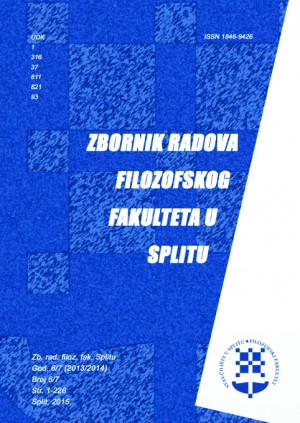GLAGOLSKA VREMENA U NOVELI ARTURA GRAFA
VERB TENSES INA A SHORT STORY BY ARTURO GRAF
Author(s): Nikica Mihaljević, Marijana Tomelić ĆurlinSubject(s): Theoretical Linguistics, Studies of Literature
Published by: Filozofski fakultet, Sveučilište u Splitu
Keywords: Future; verb tense; short story; narrative world; past; comentative world; present; reminiscence, Italian literature; oblivion;
Summary/Abstract: In this paper the short story Il Tesoro by the Italian author Arturo Graf is analysed in terms of the category of tense. The starting point of the research is Harald Weinrich’s method, which differentiates types of tense of those which relate to the comentative world from those that relate to the narrative world. On the basis of the relation between different tenses, the conclusions about the type of literary text are reached. Furthermore, its stylistic characteristics are described. Prompted by the author’s choice of verbal tense the reader can discover the stylistic particularities of the text, which is located mostly in the past. In the analysis of fantastic literature special attention is dedicated to exploring the role of reminiscence and oblivion in the literary text, where oblivion often entangles with the past, while hope entangles with the future. Consequently, the reader is not surprised that the relation between the past and the future, their oppositeness, and interdependence are of essential importance in the analysis of the short story. Weinrich’s method, applied to Graf’s short story, will show that the use of tense reveals character’s surrendering to the self-will of the past.
Journal: Zbornik radova Filozofskog fakulteta u Splitu
- Issue Year: 2008
- Issue No: 1
- Page Range: 195-207
- Page Count: 13
- Language: Croatian

